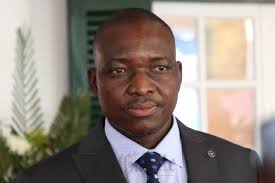Energy Minister Zhemu Soda says the current 6% rural electrification levy was not enough in terms of meeting the ambitious programme.
Speaking in Silobela at the switching on ceremony in Donsa, Soda said the programme was being hampered by financial challenges.
“The rural electrification programme has not been spared from the economic and other challenges faced by our economy in general over the past years.
“The major challenge faced by the Rural Electrification Fund (REF) is inadequate funding for the programme.
“The 6% electrification levy that REF gets through electricity sales and fiscal allocation by government are not adequate to accelerate the programme or to sustain the momentum already gained by the programme,” he said.
Soda further said the situation has been worsened by the Covid-19 pandemic, “which has negatively affected the sectors of the economy of Zimbabwe, resulting in low rural electrification levy inflows”.
REF is mandated to facilitate equitable provision of energy to rural areas of Zimbabwe.
“In this regard, the government, through Treasury, made a fiscal allocation of $70 million in 2020, in order to augment the rural electrification levy in support of the Rural Electrification Programme.”
REF was established by government in 2002 and was mandated to facilitate rapid and equitable electrification of rural areas in Zimbabwe.
In years to follow, government then launched the National Energy Policy (NEP) which was aimed at ensuring that all Zimbabweans have access to adequate, reliable, least cost and environmentally friendly and sustainable energy services.
President Emmerson Mnangagwa this year launched the National Renewable Energy Policy, a programme on action plans for the development of renewable and clean energy solutions to lighting, space heating and cooking.
To date, the rural electrification fund has electrified 9507 institutions countrywide, using both grid and solar energy.
“Provision of electricity in the rural areas will no doubt lead to the empowerment of our rural communities, alleviate poverty, build capacity and create employment, which will lead to sustainable development and social equity in Zimbabwe,” he said.
Amongst some other benefits, Zhemu noted, is the reversal of rural-urban migration and economic activities in downstream industries.
“The Rural Electrification Programme has the potential to improve the quality of life in rural areas of Zimbabwe,” he said.
The minister also decried the increase in acts of vandalism on electricity infrastructure.
Credit: New Zimbabwe
Don’t forget to follow us on Facebook, Twitter, Instagram, LinkedIn and Tamblr @mygokwe
